 By Ray Rivers
By Ray Rivers
February 16th, 2018
BURLINGTON, ON
It is easy to see why a jury of his peers might sympathize with Gerald Stanley. The cattle farmer near Biggar Saskatchewan had shot and killed a young man who had driven onto his land uninvited. Imagine if four strangers suddenly roared up to your farm house in a ratty old SUV, went poking around into your garage and fired up a piece of your equipment as if it was their own. They were trespassing, apparently argumentative and clearly disrespectful.
It is not clear what the youths had in mind when they drove up to the Stanley farm house. Nor is it clear that they hadn’t just wanted Stanley, who operated a small auto repair shop, to fix their flat tire. There is evidence they had been drinking and that they had earlier tried to break into a neighbour’s vehicle. So they may well have been up to no-good.
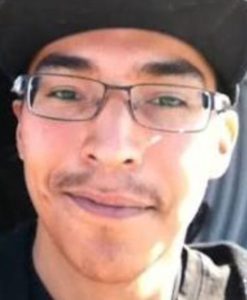
Colten Boushie
But none of that excuses the killing of young Colten Boushie, who lived on a Cree reserve about an hour’s drive away. Stanley had several weapons in his possession, including the hand gun which killed Boushie, so he clearly understood something about guns. He claims the weapon fired accidentally, an action which couldn’t be replicated in tests by a crime lab. Handguns are restricted weapons requiring registration and have strict storage requirements, but Stanley was also careless about how he stored his guns.
Stanley had used the handgun over the years, he said, to scare wildlife off his farm. Clearly the noise from a starter pistol would have been just as effective, unless he had intended to also kill the wildlife. And it sadly begs the question of whether he regarded these indigenous youth as just more wildlife, which he had hoped to scare off when he fired bullets into the air.
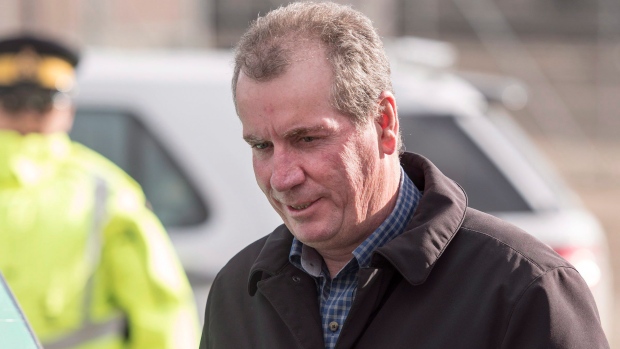
Gerald Stanley – acquitted.
Gerald Stanley was acquitted of responsibility for that killing, something which has outraged the aboriginal community, civil rights lawyers and the federal government. Mr. Trudeau and his justice minister have promised to make changes to our legal prosecution system and/or jury selection process as a result of the trial. But that won’t bring back Mr. Boushie, nor prevent this kind of incident from happening again. Nor will it heal the wounds for Boushie’s family and his fellow band members, nor indeed for the Stanley family who have not escaped this sad event without some kind of trauma.
Improving the fairness of our judicial system is always a good idea. But if that involves mandatory inclusion of indigenous jurors in these kinds of trials, that may precipitate an explosion of demand for culturally populated juries from now on. Muslims for example, may demand representation on a jury when one of their own is accused or victimized. Will that lead to a quota system as the basis for jury selection? And will multiculturalism then take precedence over the blind execution of justice?
Wouldn’t it be better for the Trudeau government to take action to reduce the chances of this kind of incident repeating itself, rather than shifting the discussion to how the courts process the consequences? The government could focus on what killed Mr. Boushie – the gun. The only purpose of a handgun is to kill people. Why not ban all handguns in this country, except those used by law enforcement officers.
Boushie apparently also had a firearm, a 22 calibre rifle in poor condition but still loaded with bullets in the chamber. It was not a part of the actual conflict but it is also telling about the gun culture spreading in this country from the contagion south of the border. One wonders how this incident might have evolved had Boushie had a chance to discharge that weapon in self-defence.
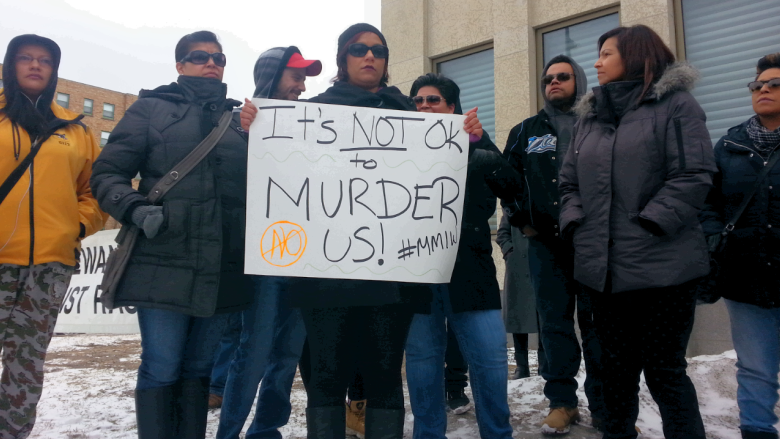
The sign makes the statement.
There is much less regulation and consideration over Canada’s firearms now that the nation’s long gun registry has been destroyed. It’s elimination was a political action to satisfy western gun owners, presumably like Stanley, despite appeals to the contrary by virtually all law enforcement agencies and most of Canada’s provinces. We register our cars and dogs but not our long guns.
Stanley’s ‘scare wildlife’ comment is telling, since it highlights the extent of racism that still exists concerning Canada’s aboriginals, particularly in the western provinces. He may not consider himself a racist but the question remains whether he would have pursued the same aggressive tactics were the invaders non-aboriginals.
The jury declined to pronounce Stanley guilty of even manslaughter, let alone the greater charge of second degree murder which the prosecution had been calling for. Stanley had every right to suspect the trespassers on his property were up to no good and may have felt threatened by their presence. And he had every right to evict them, which it appears he had done as they were in the process of leaving when the incident culminated in Boushie’s death.
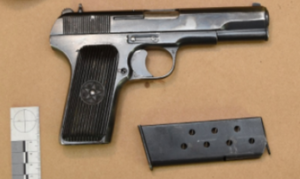
The trigger on this pistol had to be pulled for the gun to fire.
The evidence that Stanley’s gun accidentally went off as he claimed was clearly rebutted during the trial, but even if it hadn’t been, the gun that killed Boushie was in his hand the whole time.
The jury may have been motivated to find for the defendant because of the colour of his skin, or not. And they clearly believed Stanley had been in the right, that he had done no wrong. Yet it is hard to understand how any reasonable person would not have called this manslaughter. That is what happened after all – a slaughter of that young man.
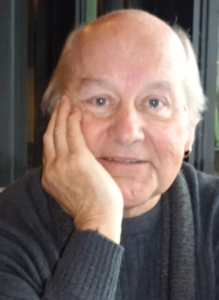 Ray Rivers writes weekly on both federal and provincial politics, applying his more than 25 years as a federal bureaucrat to his thinking. Rivers was once a candidate for provincial office in Burlington. He was the founder of the Burlington citizen committee on sustainability at a time when climate warming was a hotly debated subject. Tweet @rayzrivers
Ray Rivers writes weekly on both federal and provincial politics, applying his more than 25 years as a federal bureaucrat to his thinking. Rivers was once a candidate for provincial office in Burlington. He was the founder of the Burlington citizen committee on sustainability at a time when climate warming was a hotly debated subject. Tweet @rayzrivers
Background links:
What happened – Trial – Response to Verdict –
More response to Verdict – Historic Perspective – Weapon Malfunction –
Background – Even More Verdict – Trudeau Response –
Firearms Charges – Jury Selection –


















When is going onto someones property armed with a loaded rifle, drunk attempting to steal a vehicle. assaulting the mans wife. Where there is no Police presence for hundreds of kilometers. Not grounds for a person defending themselves. Police have shot people for a lot less and not been charged. The Constitution of Canada Charter guarantees that you be at all times secure. Brenda you omitted the fact that the man shot, had a loaded rifle in this lap. The right to defend yourself and your neighbor. Should always be upheld.
Before anyone, especially a Prime Minister or Justice Minister, decides to cast aspersions upon our system of justice they should at least read “Twenty-Five Years Later: The Impact of the Canadian Charter of Rights and Freedoms on the Criminal Law” https://www.ontariocourts.ca/coa/en/ps/publications/twenty-five_years_later.htm.
If you have never been a juror in a criminal case (I have been), you have no idea about the burden that is place upon you. Your job is to listen to both sides with an open mind. You are then tasked with the onerous responsibility of casting your vote to decide, beyond a reasonable doubt, whether the accused is guilty or not and you wear your part of the decision for the rest of your life. Second guessing a decision from an armchair, after the fact is not helpful and is disrespectful to the women and men who serve as jurors.
There are a number of reasons why factually guilty people “get off” and why cases are dismissed. For example, S24(2) of the Charter mandates the exclusion of evidence if, having regard to all the circumstances, the admission of it would bring the administration of justice into disrepute. This is but one reason, some might call it a loop hole, as to how factually guilty people escape the long arm of the law.
Looking into how we can improve our system of justice is always a good thing. An appropriate question might be, were the simplistic comments offered by Prime Minister Trudeau and Justice Minister Jody Wilson-Raybould helpful, or, did they have the unintended effect of bringing the administration of justice into disrepute?
In Canada, it has always been against the law to take the law into your own hands.
In the States, otherwise known as the Wild West, it has been acceptable for homeowners to defend their property by shooting tresspassers.
Apparently, by not finding this farmer guilty of manslaughter, we are adopting the mindset of Americans.
Interesting account on several levels. Stanley had a number of choices other than a fatal shot. If the picture depicts the gun, it is striker fired, not hammer fired. Thus, either he had a round in the chamber or he had to take the act of jacking a round into the chamber. It does not appear to have a two stage trigger. Trigger squeeze is typically 3 – 5 lbs on guns such as depicted. Time to think. And, unlikely to accidentally discharge.
Jury selection weighted toward peers is questionable in asymmetric cases such as this. Yet, weighing too far in one direction has its problems, as seen in the O.J. Simpson case.
I am also baffled by the complete exoneration. I’m hoping that if there was a bias (and I’m not for bias) it was against hooligans presenting a perceived threat and not against aboriginals.
One would almost think you were sitting in the courtroom, Mr. Rivers, analyzing the farmer’s state of mind from your vast experience of armchair psychology, equating “wildlife” with aboriginals. In short, you have concluded Mr Stanley is just a racist. The “hang fire” defence was not completely debunked, but questioned on the basis that it was a rare occurrence, which is not the same thing as never occurring. The fact that it could not be duplicated with his gun might only mean the ammunition used in the attempt may have been better than the ammunition he loaded into his gun. We do not know what witnesses said against Stanley and what witnesses said for him. We do know that there had to be three witnesses to the shooting who were in the vehicle. Stanley testified in his own defence. Juries look to the honesty of witnesses as well as what they are saying. I could not say whether justice was done unless I had been in that courtroom and considered the totality of the evidence and the honesty of the witnesses.
I do agree with you that the jury system aught not to be tampered with because of this case. There is a saying in the legal profession that hard cases make bad law.
A Firearms Acquisition Certificate is required to own a handgun, and that can only be obtained after passing the course. If, after taking the course, Mr. Stanley ignored the directives around storage and handling of a weapon that is incriminating to say the least. It’s my understanding that a gun owner is not permitted to have a loaded weapon, and that the ammunition for that weapon must be stored separately. I understand why people, especially farmers or persons living in remote communities, may need a rifle, but the reasoning as to why anyone short of law enforcement officials would need a handgun escapes me.
Re: jury selection. In the Boushie case there were 750 people who were identified as possible jurors. Typically, the jury pool is 400, so the problem isn’t an inadequate sample size. The geographic area the jurors were pulled is called the Battleford Jury Boundary and stretches from Kindersley to the Northwest Territories which is along the western border of Saskatchewan. One would have expected that in that vast area they could have found a representative sample of indigenous and non-indigenous jurors. Part of the problem is that prospective jurors were identified from provincial health records, a practice that has been in existence for over 35 years. If the pool from which the jurors is drawn is, in itself, not representative of the population then you don’t get a representative sample.
The jury selection problem could be resolved in part by sourcing jurors from other databases (e.g. provincial driving records), or drawing from multiple databases.
A very refreshing story, Ray, from the perspective of one who daily lives within “the contagion south of the border.” Nonetheless, there’s a wee bit of something up there that reminds me of my nearly 4 years in Texas.
That the Trudeau government recognizes the very troubling aspects of the outcome of this trial no doubt is positive, however, I am left wondering about “the changes to [Canada’s] legal prosecution system and/or jury selection process,” something which I trust you will report on later.
I too am incredulous not only with the verdict but also the notion that a man who surely could be described as very experienced with handguns purportedly made such a horrendous error.
Thank you for the reportage.
Bill
Ray, You are stating that you know more than the 12 jurors who acquitted Mr. Stanley. ” hard to understand how any reasonable person would not have called this manslaughter. ” So, you are saying the 12 jurors are unreasonable. Hmmm.
In any case, I agree with you on the hand gun issue. Ban them!
Bill